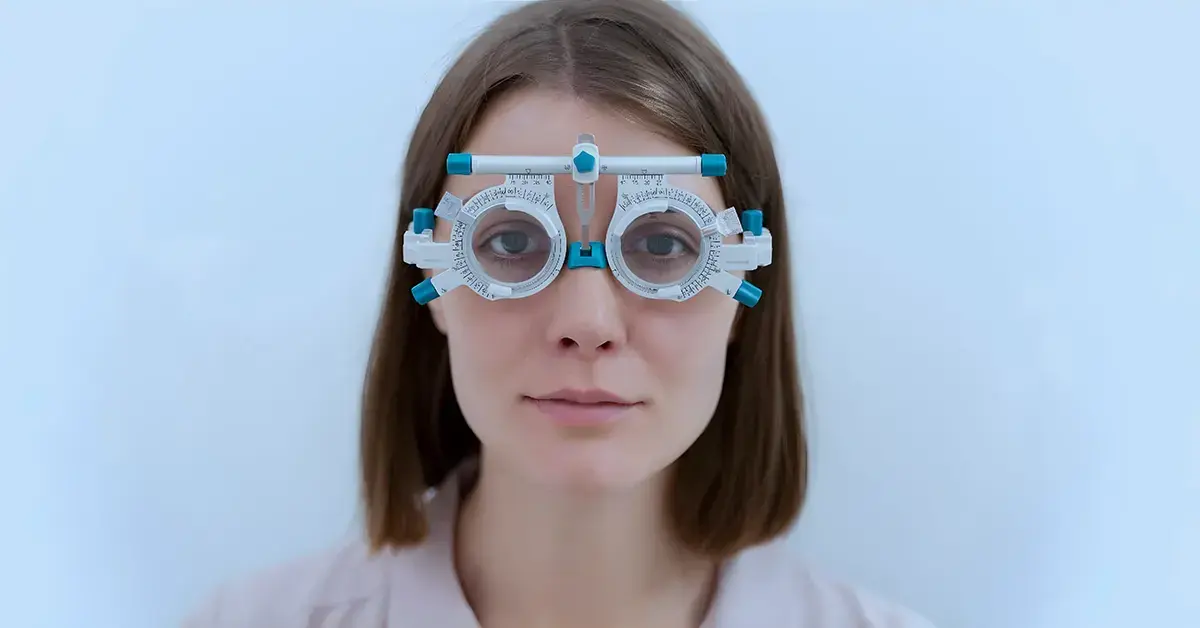The eyes are one of the most important parts of your body. They help you see the world,
recognize faces, and enjoy the beauty of life. But like any other part of your body, your eye
need care and attention to stay healthy. In this article, we’ll discuss simple ways to take care of
your eyes, along with the latest information on eye health.
Why is Eye Health Important?
Good eye health is essential for maintaining your vision and overall quality of life. If you neglect
your eyes, you might experience problems like blurry vision, eye strain, or even more serious
conditions like glaucoma or cataracts. According to the World Health Organization (WHO), at
least 2.2 billion individuals worldwide suffer from vision problems, with over half of these
instances preventable with good eye care.
Common Eye Problems
- Refractive Errors: Conditions like nearsightedness, hyperopia, and astigmatism cause blurry
vision due to eye shape. - Dry Eyes: Insufficient tear production or rapid tear evaporation can cause discomfort, redness,
and blurred vision. - Cataracts: Clouding of the eye’s lens leads to decreased vision.
- Glaucoma: Damages the optic nerve, often due to high eye pressure, leading to vision loss if
untreated. - Age-Related Macular Degeneration (AMD): Affects the central retina, leading to central
vision loss.
Simple Tips for Maintaining Eye Health
It doesn’t have to be difficult to take care of your eyes. Here are some simple steps you can take to keep your eyes healthy
Regular Eye Exams
One of the best ways to protect your eyes is by having regular eye exams. An eye exam can
detect problems early, even before you notice symptoms. The American Academy of
Ophthalmology advises that individuals receive a full eye examination at the age of 40. After
that, you should have regular check-ups every 1-2 years, especially if you’re over 60 or have a
family history of eye disease.
Protect Your Eyes from the Sun
UV radiation from the sun may damage your eyes in the same way that they do your skin.
Prolonged exposure to UV rays increases the risk of cataracts and other eye conditions. To
protect your eyes, wear sunglasses that block 100% of UVA and UVB rays whenever you’re
outside. A wide-brimmed hat might also offer further protection.
Eat a Healthy Diet
What you eat can have a big impact on your eye health. Foods rich in omega-3 fatty acids,
vitamins C and E, and zinc can help reduce the risk of age-related eye problems like macular
degeneration. Some eye-friendly foods include:
Leafy greens, omega-3 fish, nuts, citrus fruits, and carrots are essential for a healthy diet, as
they are rich in beta-carotene, a nutrient that protects the eyes.
Take Breaks from Screens
In today’s digital world, many of us spend hours in front of computers, phones, and other
screens. Staring at screens for long periods can cause eye strain, dry eyes, and headaches.
Quit Smoking
Quitting smoking is crucial for maintaining eye health, as it increases the risk of cataracts,
macular degeneration, and optic nerve damage. Talk to your doctor about resources to help you
quit smoking.
Keep Your Eyes Clean
It’s important to keep your eyes clean, especially if you wear contact lenses. Always wash your
hands before touching your eyes, and clean your contact lenses as directed by your eye care
professional. It is recommended that contact lenses not be used when sleeping unless they are
made specifically for overnight wear.
Get Enough Sleep
Just like the rest of your body, your eyes need rest to stay healthy. Getting enough sleep helps
prevent eye strain and allows your eyes to recover from the day’s activities. Aim for 7-8 hours of
sleep each night to keep your eyes feeling fresh.
Manage Chronic Conditions
Diabetes and high blood pressure are two chronic illnesses that can have an impact on your
eyesight.
If you have any of these conditions, it’s important to manage them with the help of your
healthcare provider. Regular check-ups and proper medication can help prevent eye problems
related to these conditions.
Latest Trends in Eye Health
In the area of eye health, new trends are arising as technology advances:
- Telemedicine for Eye Care: During COVID-19, virtual consultations offered by eye care
providers. - Blue Light Blocking Lenses: Designed to reduce exposure to blue light from digital devices,
reducing eye strain and sleep disturbances. - Gene Therapy: Research exploring potential treatment for inherited eye conditions, offering
hope for genetic eye disorders.
Your eyes are a vital part of your health, and taking care of them should be a priority. By
following these simple tips and staying informed about the latest trends in eye health, you can
help ensure that your eyes stay healthy for years to come. Remember to schedule regular eye
exams, protect your eyes from the sun, eat a balanced diet, and take breaks from screens. Your
eyes will thank you!
